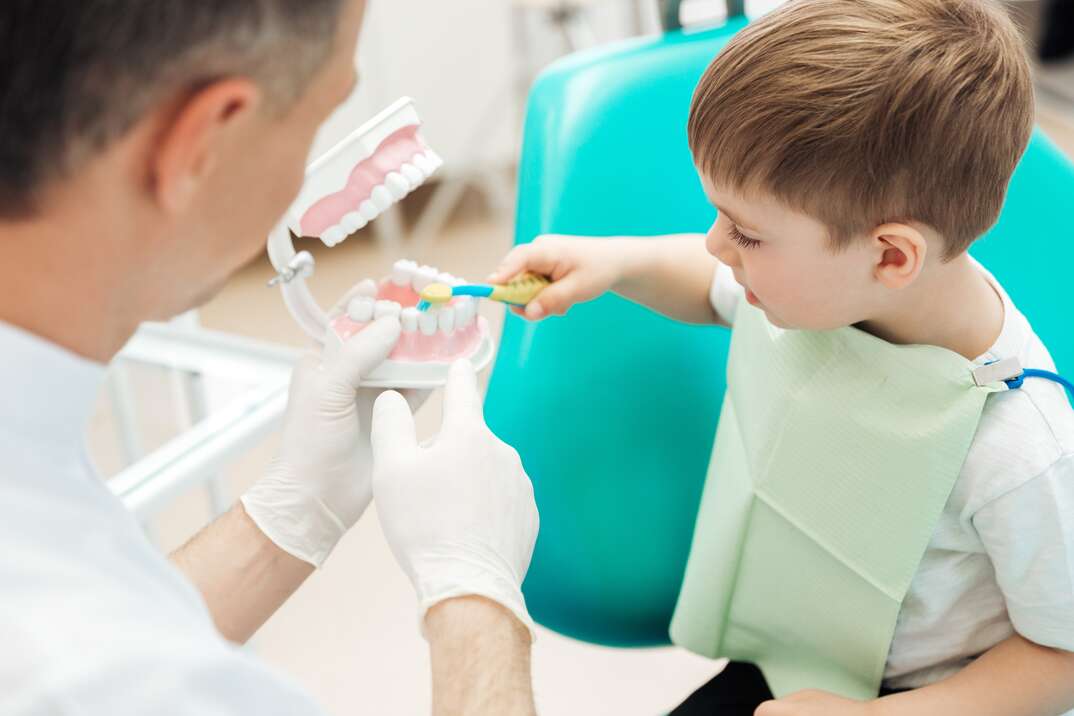- AppliancesElectriciansHVACLandscapingLocksmithPest ControlPlumbingRenovationRoofingT V RepairAll Home Improvement
- Car AccidentClass ActionCorporate LawCriminal DefenseDivorce LawEmployment LawFamily LawFinancial LawLegal AidMedical Injury LawyersMedical MalpracticeReal Estate LawWater Fire RestorationAll Legal
- InvestmentRetirementAll Finance
- Animal InsuranceAutoGeneral InsuranceHealth PolicyHome RentersAll Insurance
- DentalHealth SpecialistsAll Medical
- Animal CareVeterinaryAll Pets
- Auto GlassTowingAll Automotive
How Much Does a Dental Cleaning Cost?

Does the thought of going to the dentist cause you fear? No one enjoys going to a dental cleaning, but it's an important part of your dental health routine.
Dental cleaning costs can vary based on whether you have dental insurance. Here’s a look at how much you might pay.
If you have dental insurance, preventative dental services are usually covered at 100%, so you won't have to pay anything out of pocket. Regular dental cleanings fall under the preventative care category. However, some dental insurance plans have a limit on how much they'll pay. If you go to an expensive dentist, part of the appointment cost might not be covered by your policy. The amount you pay depends on the cost of the appointment and the limits of your policy — you'll pay the difference. Some policies also limit coverage to one cleaning per year, so you'll have to pay for a second cleaning if you have one.
How Much Does a Dental Cleaning Cost If You Don't Have Dental Insurance?
If you don't have dental insurance, you'll pay the full price of the cleaning, which can range from $75 to $200, according to health insurance company Humana. On average, you can expect to pay around $125 for a cleaning. Some dental offices offer discounts if you pay in cash at the time of the service.
Dental cleaning cost ranges often vary by location. If you live in an area with a higher cost of living in general, you can expect dental services to also cost more. The dentist's experience can also affect how much you pay. A highly experienced dentist with a thriving practice might charge more than a new dentist that's just starting.
What Does a Dental Cleaning Include?
A routine dental cleaning appointment involves more than just a professional cleaning. You'll get a complete exam to assess your oral health. You'll also get X-rays at some routine appointments. You can expect an average dental cleaning appointment to take between 30 and 45 minutes.
A dental hygienist typically removes the plaque, tartar and other buildup on your teeth, polishes your teeth and flosses for you. The scaling process involves a manual or an ultrasonic tool to remove plaque and tartar. The polishing process uses an automatic tool to smooth the enamel, which can minimize plaque buildup on your teeth. The dentist will also check your teeth and review any concerns they find during the cleaning and exam.
What Do You Pay for a Deep Cleaning?
Deep cleaning is different from regular dental cleanings and costs significantly more. Insurance provider Guardian Direct says you can expect to pay about $200 per quadrant or $1,000 or more for your entire mouth without insurance.
Most dental insurance will cover this procedure if your dentist diagnoses you with periodontal disease, which is when you typically need this type of cleaning. This procedure usually falls under the basic procedure category of dental insurance, which typically means the insurance company will pay up to 80% of the cost. With insurance, you could pay $200 or more for a deep cleaning, depending on the coverage level of your policy.
Why Are Dental Cleanings Important?
Even if you have to pay for the cost of dental cleanings out of pocket, they are a necessary and important part of maintaining your dental health. Professional cleaning can prevent tooth decay and gum disease, which can help keep your teeth in good condition and prevent tooth loss.
These cleanings and exams also give your dentist a chance to thoroughly inspect your mouth and teeth. Dentists can diagnose oral health issues early when they're still highly treatable. For example, your dentist might diagnose you with periodontal disease in its early stages when there are lots of effective treatment options, or they might diagnose you with oral cancer before it spreads.
Your dentist can also look for changes from appointment to appointment. When you go to the dentist regularly, they determine what's normal for your teeth. If something changes between appointments, they can investigate the issue.
How Often Do You Need Dental Cleanings?
Most dentists recommend a minimum of one dental cleaning per year. Some dentists recommend that you get two cleanings per year, six months apart. If you have been diagnosed with dental health issues, your dentist might want to schedule more frequent cleanings and exams to keep on top of the issue. Consult with your dentist to get their recommendation based on your situation.
Elocal Editorial Content is for educational and entertainment purposes only. The information provided on this site is not medical advice. Editorial Content is not intended to be used for diagnosis or treatment. We are not physicians or a substitute for advice from a physician. The opinions, beliefs and viewpoints expressed by the eLocal Editorial Team and other third-party content providers do not necessarily reflect the opinions, beliefs and viewpoints of eLocal or its affiliate companies. Use of the Blog is subject to the
Website Terms and Conditions.The eLocal Editorial Team operates independently of eLocal USA's marketing and sales decisions.



